Chincholi Wildlife Sanctuary provides a serene retreat into the heart of nature. Often overlooked in favour of more famous reserves, this sanctuary invites wildlife enthusiasts and nature lovers to explore its rich diversity of flora and fauna. Covering an expansive area, it is a refuge for numerous species, including rare and endangered ones. As you wander through its lush greenery and vibrant ecosystems, you’ll encounter a sense of peace that makes it distinguishing. The sanctuary’s pristine environment also offers a perfect setting for birdwatching and nature photography, making it a must-visit destination for those seeking a deeper connection with nature.
Location
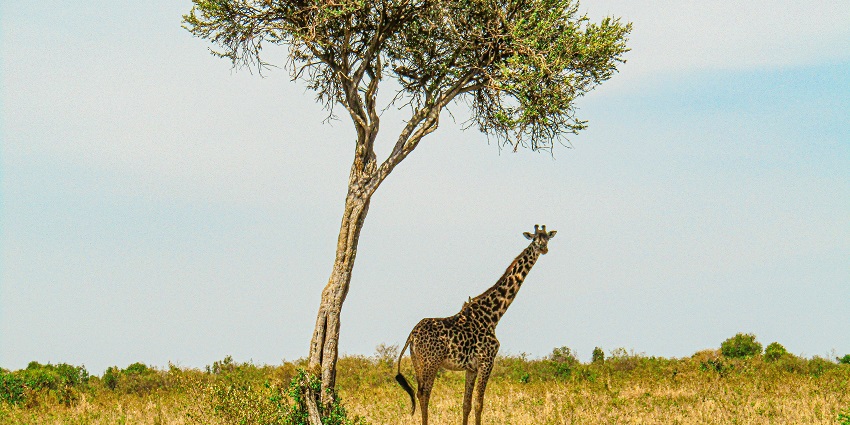
Photo: Jordi Rubies / Unsplash / Image For Representation Only
Located in the Kalaburagi (Gulbarga) district of Karnataka, the sanctuary spans over the border between Karnataka and Telangana, making it easily accessible from both states. The Chincholi Wildlife Sanctuary address is approximately 70 km from Kalaburagi, offering a convenient getaway for nature enthusiasts from nearby cities. The sanctuary covers an area of around 134.88 square kilometres, with diverse landscapes that include dry deciduous forests, grasslands, and rocky terrain.
Suggested Read: Wildlife Sanctuaries Near Bangalore For A Refreshing Getaway
How To Reach
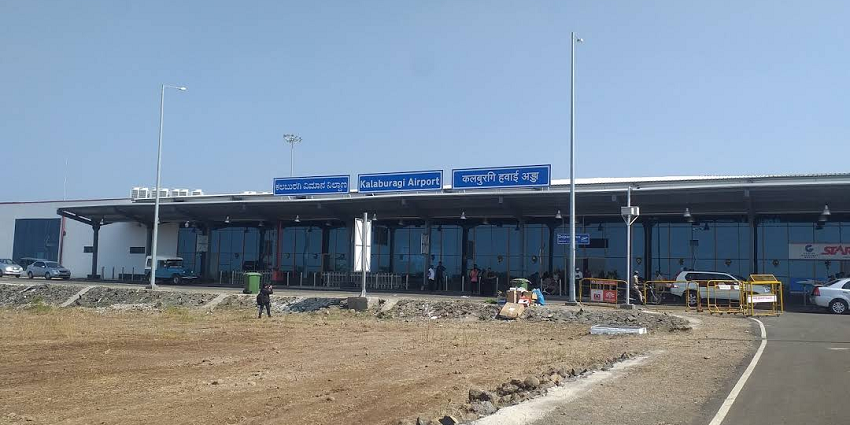
Photo: VishuN / Wikimedia Commons
By Air: Kalaburagi Airport, about 70 km from the sanctuary, is the nearest airport. Well-connected to major cities, it offers easy access to the sanctuary, with a road journey of 1.5 to 2 hours by taxi or bus.
By Road: Driving towards the sanctuary is a delightful option. The sanctuary is well-connected by roads, and you can reach it via National Highway 65, making the journey comfortable and scenic. Besides that, you can also choose to take a bus or hire a taxi to get to the destination.
By Train: The closest major railway station is in Gulbarga, about 50 km from the sanctuary. Regular trains from Bangalore and Hyderabad connect to Gulbarga, from where you can travel by road. So, once you reach the station, just hire a taxi or a bus, and get to the attraction in no time.
Places To Visit Around Chincholi Wildlife Sanctuary
The sanctuary is surrounded by several intriguing spots worth exploring during your visit. Here is a well-curated list of those hotspots.
1. Chandrampalli Dam
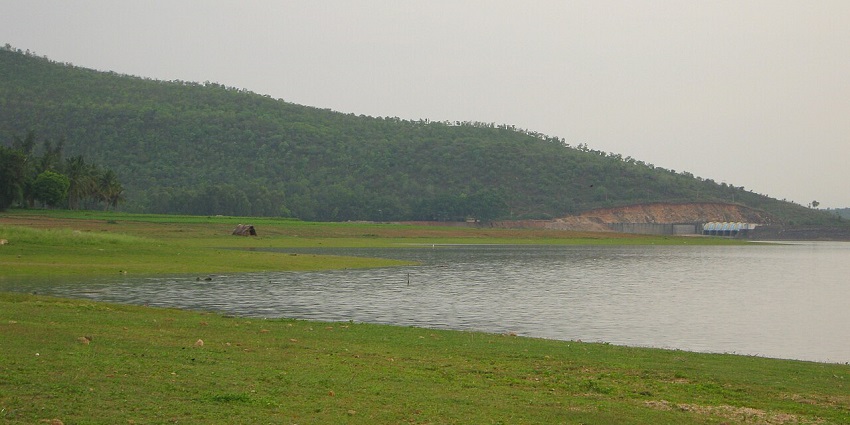
Photo: Redolentreef / Wikimedia Commons
Located approximately 30 km from the sanctuary, Chandrampalli Dam is a picturesque spot ideal for a day trip. The dam is built across the Bhima River and is surrounded by lush greenery, providing a perfect setting for picnics and nature walks. The tranquil waters of the reservoir and the scenic views of the surrounding hills make it a great place to relax and unwind amidst nature, offering a refreshing escape from city life.
Best Time To Visit: November to February
Timings: 6 AM – 6 PM
Entry Fee: NA
Ideal Trip Duration: 2 – 3 hours
Suggested Read: Bhadra Wildlife Sanctuary
2. Sannati
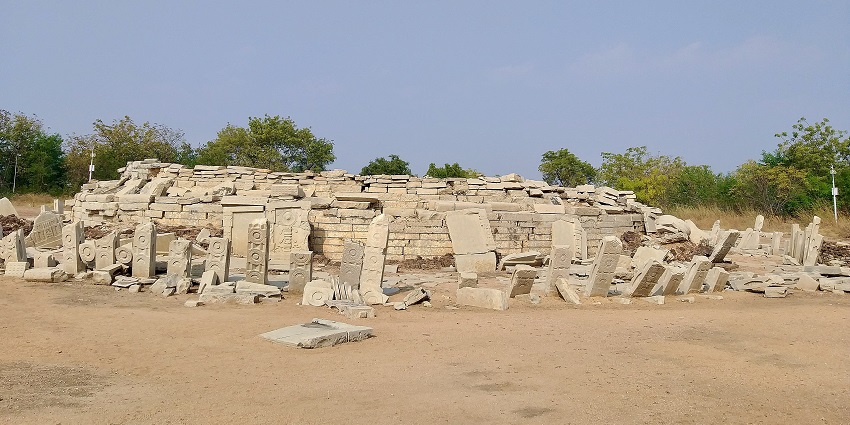
Photo: Ms Sarah Welch / Wikimedia Commons
Located about 60 km from the sanctuary, Sannati is an ancient archaeological site known for its Buddhist relics. The site is famous for the Ashokan edicts and the remains of a stupa, making it a significant spot for history enthusiasts. Visitors can explore the ancient ruins and marvel at the stone carvings, which offer a glimpse into India’s rich Buddhist heritage. The serene setting enhances the experience, providing a peaceful backdrop for reflection and exploration.
Best Time To Visit: November to March
Timings: 9 AM – 5 PM
Entry Fee: ₹20
Ideal Trip Duration: 2 – 4 hours
3. Gulbarga Fort
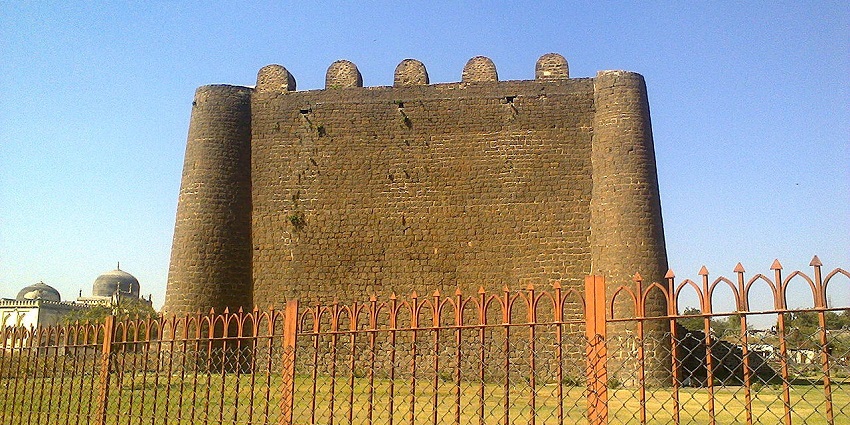
Photo: Naidugari Jayanna / Wikimedia Commons
Gulbarga Fort, located about 70 km from Chincholi, is a historic fortification that dates back to the 14th century. Known for its impressive architecture, the fort houses several structures, including the grand Jama Masjid, which features 68 domes. The fort’s vast expanse, along with its well-preserved ruins, offers a fascinating journey through time, making it an essential stop for history lovers, architecture enthusiasts, and cultural explorers visiting the region.
Best Time To Visit: November to February
Timings: 9 AM – 6 PM
Entry Fee: ₹25
Ideal Trip Duration: 2 – 4 hours
Suggested Read: Places To Visit In Gulbarga
4. Tomb Of Khwaja Bande Nawaz
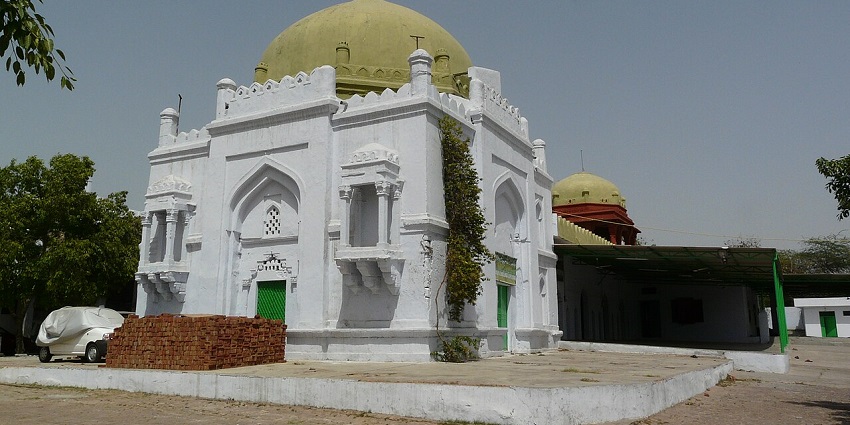
Photo: Varun Shiv Kapur / Wikimedia Commons
Situated in Gulbarga, around 70 km from Chincholi, the Tomb of Khwaja Bande Nawaz is a revered Sufi shrine. The tomb is an architectural marvel, beautifully blending Indo-Saracenic styles, and attracts devotees and tourists alike. The serene atmosphere and intricate designs make it a must-visit for those interested in history, architecture, and spirituality. The annual Urs festival held here is a major attraction, drawing visitors from all over the country.
Best Time To Visit: October to March
Timings: 6 AM – 7 PM
Entry Fee: NA
Ideal Trip Duration: 2 – 3 hours
5. Bidar Fort
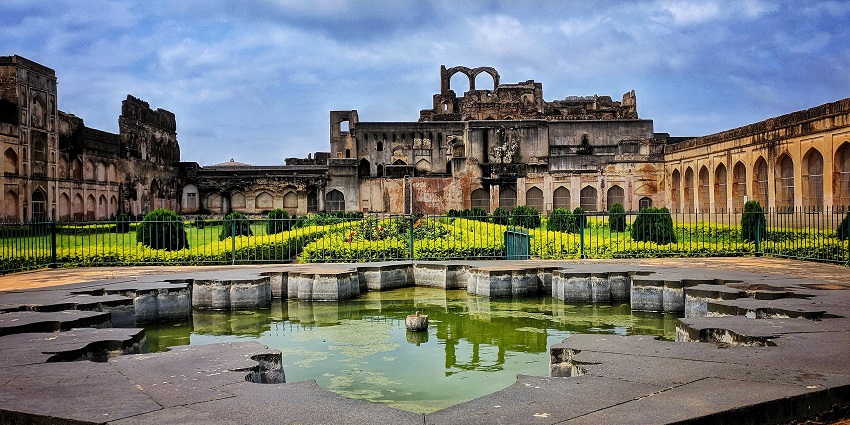
Photo: Atanu srt / Wikimedia Commons
Bidar Fort, around 80 km from Chincholi, is one of the most prominent historical sites in Karnataka. The fort is known for its intricate architecture and numerous monuments within its premises, including the Rangin Mahal and the Solah Khamba Mosque. The fort’s rich history and well-preserved structures make it a captivating destination for those interested in exploring the region’s royal past. The panoramic views from the fort add to the experience, making it a must-visit.
Best Time To Visit: October to March
Timings: 9 AM – 5 PM
Entry Fee: NA
Ideal Trip Duration: 3 – 4 hours
Suggested Read: Explore Best Places To Visit In Bidar On Your Karnataka Trip
Where To Stay

Photo: Curtis Adams / Pexels / Image For Representation Only
Accommodations near the sanctuary range from basic lodges to more comfortable options. The sanctuary itself has limited options, so booking a stay in nearby region Gulbarga is advisable. Hotels such as Hotel City Inn and Hotel Aditya provide convenient lodging with essential amenities. For a more immersive experience, consider staying in eco-friendly lodges or resorts in the region that offer proximity to nature. Some of the recommended stay options are: Karandi Valley Resort, Kyriad Hotel, Pawankhind Resorts, and more.
What To Eat

Photo: Food and Remedy, LLC / Wikimedia Commons / Image For Representation Only
While exploring the sanctuary, choose to indulge in an array of local cuisines of Karnataka. Try traditional dishes such as Bisi Bele Bath (a spicy rice and lentil dish), Ragi Mudde (finger millet balls), and Mysore Pak (a sweet treat). Popular restaurants in Gulbarga include Hotel City Inn, known for its South Indian delicacies, and Hotel Aditya, which offers a range of traditional Karnataka dishes. Kamat’s Restaurant and Nandhini Restaurant are also great options for a variety of local and regional specialties.
Suggested Read: Mookambika Wildlife Sanctuary
Best Time To Visit
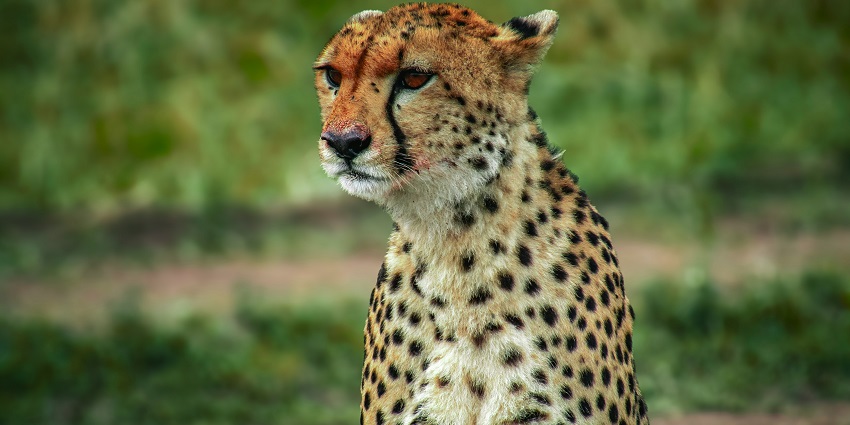
Photo: Jordi Rubies / Unsplash / Image For Representation Only
The ideal time to visit the sanctuary is between November and March. During these months, the weather is pleasant and conducive for wildlife viewing and outdoor activities. The cooler temperatures and dry conditions make it easier to spot animals and enjoy the sanctuary’s natural beauty.
Other Factors To Consider

Photo: Fabrizio Verrecchia / Wikimedia Commons / Image For Representation Only
Average Cost Of Trip
A trip to this amazing sanctuary can cost you around ₹5,000 to ₹8,000 per person, including travel, accommodation, and food. Costs may vary based on the season and travel preferences as well.
Tips For Travellers
- Wear comfortable clothing and sturdy footwear for exploring the sanctuary.
- Carry binoculars and a camera for wildlife observation and photography.
- Always follow the park’s guidelines and respect wildlife.
- Stay hydrated and bring essential supplies like sunscreen and insect repellent.
- Plan your visit during daylight hours to make the most of wildlife sightings.
Suggested Read: Sharavathi Wildlife Sanctuary
Chincholi Wildlife Sanctuary is a hidden treasure in Karnataka that offers an enriching experience for nature lovers and wildlife enthusiasts. Its diverse ecosystem and serene environment provide a refreshing escape from the hustle and bustle of city life. The sanctuary’s peaceful setting and abundant wildlife make it a unique destination for relaxation and exploration. For a seamless travel experience, consider booking your trip through TripXL.
Cover Photo: Hari K Patibanda / Wikimedia Commons


 WhatsApp
WhatsApp
 Twitter
Twitter









